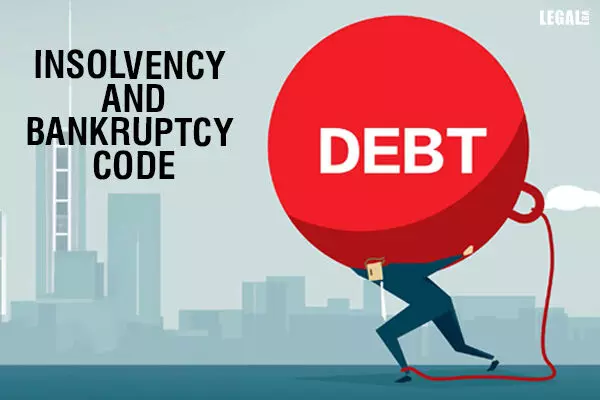- Home
- News
- Articles+
- Aerospace
- AI
- Agriculture
- Alternate Dispute Resolution
- Arbitration & Mediation
- Banking and Finance
- Bankruptcy
- Book Review
- Bribery & Corruption
- Commercial Litigation
- Competition Law
- Conference Reports
- Consumer Products
- Contract
- Corporate Governance
- Corporate Law
- Covid-19
- Cryptocurrency
- Cybersecurity
- Data Protection
- Defence
- Digital Economy
- E-commerce
- Employment Law
- Energy and Natural Resources
- Entertainment and Sports Law
- Environmental Law
- ESG
- FDI
- Food and Beverage
- Gaming
- Health Care
- IBC Diaries
- In Focus
- Inclusion & Diversity
- Insurance Law
- Intellectual Property
- International Law
- IP & Tech Era
- Know the Law
- Labour Laws
- Law & Policy and Regulation
- Litigation
- Litigation Funding
- Manufacturing
- Mergers & Acquisitions
- NFTs
- Privacy
- Private Equity
- Project Finance
- Real Estate
- Risk and Compliance
- Student Corner
- Take On Board
- Tax
- Technology Media and Telecom
- Tributes
- Viewpoint
- Zoom In
- Law Firms
- In-House
- Rankings
- E-Magazine
- Legal Era TV
- Events
- News
- Articles
- Aerospace
- AI
- Agriculture
- Alternate Dispute Resolution
- Arbitration & Mediation
- Banking and Finance
- Bankruptcy
- Book Review
- Bribery & Corruption
- Commercial Litigation
- Competition Law
- Conference Reports
- Consumer Products
- Contract
- Corporate Governance
- Corporate Law
- Covid-19
- Cryptocurrency
- Cybersecurity
- Data Protection
- Defence
- Digital Economy
- E-commerce
- Employment Law
- Energy and Natural Resources
- Entertainment and Sports Law
- Environmental Law
- ESG
- FDI
- Food and Beverage
- Gaming
- Health Care
- IBC Diaries
- In Focus
- Inclusion & Diversity
- Insurance Law
- Intellectual Property
- International Law
- IP & Tech Era
- Know the Law
- Labour Laws
- Law & Policy and Regulation
- Litigation
- Litigation Funding
- Manufacturing
- Mergers & Acquisitions
- NFTs
- Privacy
- Private Equity
- Project Finance
- Real Estate
- Risk and Compliance
- Student Corner
- Take On Board
- Tax
- Technology Media and Telecom
- Tributes
- Viewpoint
- Zoom In
- Law Firms
- In-House
- Rankings
- E-Magazine
- Legal Era TV
- Events
NCLAT Rules Look-Back Period For Related-Party Transactions Cannot Exceed Two Years Under IBC

NCLAT Rules Look-Back Period for Related-Party Transactions Cannot Exceed Two Years Under IBC
The National Company Law Appellate Tribunal (NCLAT), Principal Bench, New Delhi, comprised of Justice Yogesh Khanna (Judicial Member) and Mr. Ajai Das Mehrotra (Technical Member), has clarified that Section 43 of the Insolvency and Bankruptcy Code (IBC) does not permit the extension of the look-back period beyond two years for related- party transactions.
M/s Sysco Industries Ltd. (the Corporate Debtor) supplied goods to M/s Pratap Associates, a Hindu Undivided Family (HUF) firm linked to an erstwhile shareholder and Director (Appellant No. 3). These supplies were made before May 23, 2018, and the outstanding amount against Pratap Associates as of that date totaled ₹7.78 crores.
The corporate debtor entered the corporate insolvency resolution process (CIRP) on September 8, 2021, triggering the look-back period under Section 43 of the IBC, which commenced on September 8, 2019.
The Resolution Professional filed an application under Section 43 to extend the look-back period from two years to five years, citing that financial data was only available until March 2019. The National Company Law Tribunal (NCLT) granted this request on November 9, 2022, and directed the respondents to deposit the outstanding amount within 15 days.
The appellant subsequently filed an appeal against the NCLT's order.
The key question was whether the look-back period could be extended beyond two years as specified in sub-section (4) of Section 43 of the IBC.
The Tribunal referred to the precedent set in Anuj Jain, Interim Resolution Professional for Jaypee Infratech Ltd. v. Axis Bank Ltd. and Others, which stated that for a preference to qualify as an "offending" one under Section 43, it must occur within the designated “relevant time.”
It was further emphasized that a preference is only avoidable if it falls within the two-year period defined in sub-section (4) of Section 43.
The NCLAT determined that, since the outstanding amount dated back more than two years before the commencement of the CIRP, the relief under Section 43 could not be applied. As a result, the tribunal set aside the NCLT's order and allowed the appeal, granting respondents the option to pursue alternative remedies, including those under Section 66 of the IBC.


